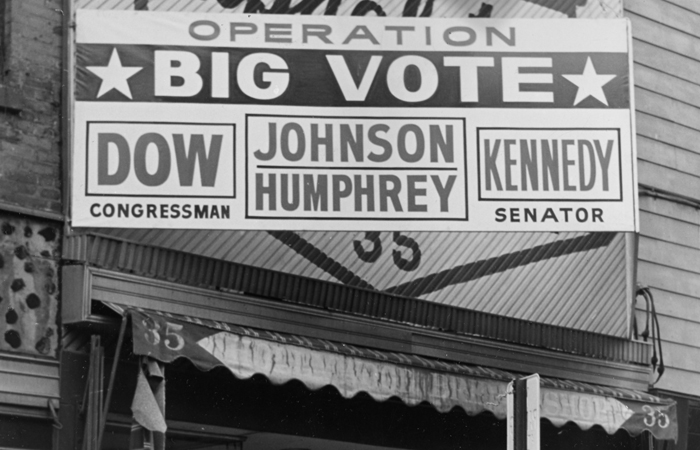This series documents the legislative concerns of the organization during the 1970s. The series contains SASU's annual legislative agenda, memos to State legislators and SASU officers at member schools, information packets distributed at the annual legislative conference, and periodic legislative reports compiled by SASU's legislative director. Since SASU did not start lobbying until December/January 1973-74, at which time it registered its legislative director with the New York State Secretary of State, most of the material covers the period 1974-80. SASU was especially involved in lobbying for the passage of the following legislation: mandatory provisions of absentee ballots, upon request, to eligible, unavoidably detained voters in primary elections (1974); the age of majority bill, lowering the age of majority from 21 to 18 (1974); the creation of the Tuition Assistance Program, (TAP), the nation's largest and most comprehensive student aid program (1974); mail voter registration (1975); a student trustee bill, drafted and initiated by SASU, which resulted in students becoming non-voting members on the SUNY Board of Trustees, the City University of New York Board of Higher Education, and on college and university councils and boards of trustees for all New York State's public colleges (this legislation was enacted despite strong opposition by many trustees and SUNY Central's legislative effort), (1975); the establishment of four students as voting members on the Higher Education Services Corporation's Board of Trustees, and four students on the HESC's Advisory Council, (the Board and the Advisory Council are responsible for determining administrative policies for HESC, which controls student financial aid), (1976); restoration of four of the five TAP programs cut in proposals by Governor Carey, (1976); the guarantee of all parliamentary rights, excluding the right to vote, for student members of the SUNY Board of Trustees, CUNY Board of Higher Education, and university and college councils for all public colleges, (these rights include, for example, the privileges of making and seconding motions, and attendance at executive sessions) (1977); marijuana decriminalization, preventing criminal penalties for the possession of small amounts of marijuana, (1977); an increase in the maximum allowable TAP eligible income, from $2,000 to $2,750 to allow for inflation, (1978); defeat of an attempt to cut off Medicaid funding for abortions, (1978); the repeal of the student health fee, (1979); and finally, after intensive lobbying by SASU, Student Trustees and student College Council members were granted the right to vote
